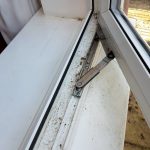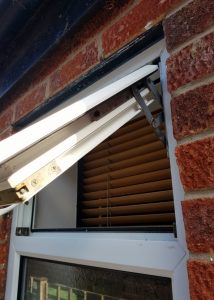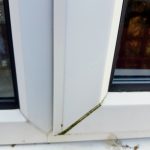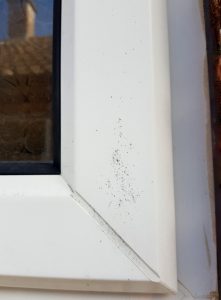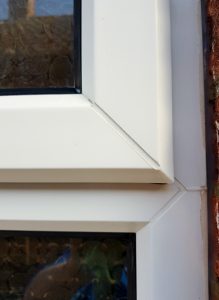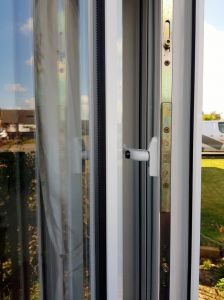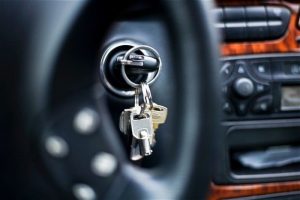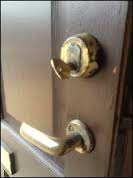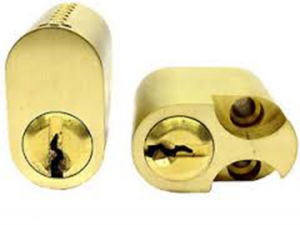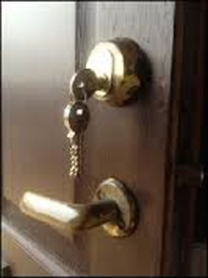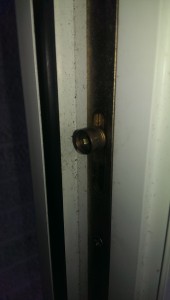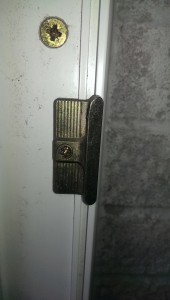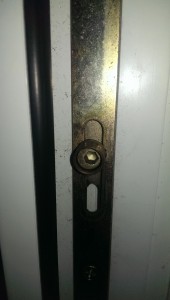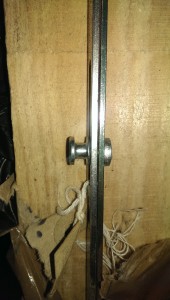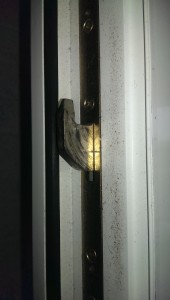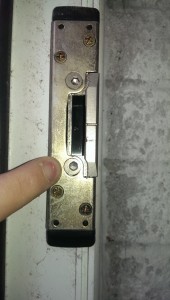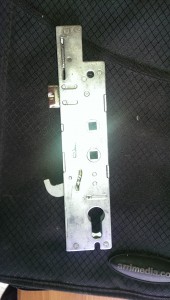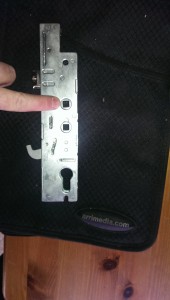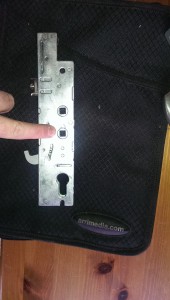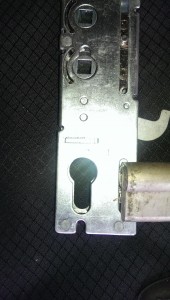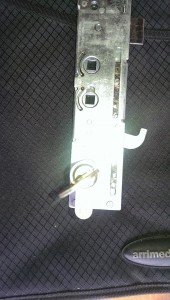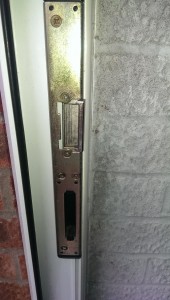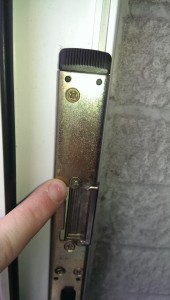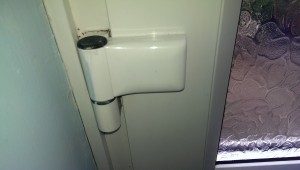Maintaining Multipoint Locking Doors

Ensure the Longevity and Security of Your Doors
Multipoint locking doors are increasingly popular in homes and commercial properties due to their superior security features. With locks engaging at multiple points along the frame, these doors offer enhanced protection from break-ins and better sealing against external elements. However, like any mechanical system, they require regular maintenance to ensure optimal performance and longevity. Below is a thorough guide on how to maintain these complex yet valuable systems.
Understanding Multipoint Locking Systems
Before delving into maintenance tips, it’s essential to understand what a multipoint locking system entails. These systems typically feature three or more locking points, which simultaneously engage when the door handle is lifted or turned. The locking points often include the main latch, deadbolt, and additional hooks or bolts along the edge of the door.
Why Maintenance Matters
Multipoint locking systems are key to your door’s security and efficiency. Proper maintenance ensures:
- Consistent functionality: Prevent stiff mechanisms or misaligned locks that compromise security.
- Prolonged lifespan: Reduce wear and tear by addressing minor issues before they escalate.
- Enhanced energy efficiency: Maintain proper sealing to prevent drafts and energy loss.
Routine Maintenance Tips
1. Regular Cleaning
Dust and debris can accumulate inside the locking system, hindering smooth operation. To clean:
- Use a soft cloth to wipe down the exterior parts of the lock.
- For internal components, employ a dry brush or compressed air to remove dust.
- Avoid using water or harsh cleaning agents that could corrode metal components.
2. Lubrication
Proper lubrication is vital for keeping the locking mechanism smooth and functional.
- Apply a silicone-based lubricant or specialist lock lubricant to all moving parts, such as latches, hooks, and bolts.
- Avoid oil-based lubricants, as they can attract dirt and create a sticky residue.
- Conduct lubrication every six months or as needed, depending on use.
3. Inspect Alignment
Misalignment can cause difficulty in locking or closing the door. Check for:
- Uneven gaps between the door and frame when closed.
- Strain or resistance when engaging the locks.
If misalignment occurs:
- Adjust the strike plates on the frame using a screwdriver.
- Ensure the door hinges are tightened and properly aligned.
4. Check for Wear and Tear
Over time, components of the locking system may wear out. Inspect for:
- Cracks, rust, or deformities in the locking points.
- Loose screws or bolts in the assembly.
- Handle mechanisms that jiggle or feel unstable.
Replace damaged parts promptly to avoid compromising the entire system.
Advanced Maintenance Practices
1. Professional Inspection
While routine checks are beneficial, a professional locksmith or technician can perform a detailed inspection of your multipoint locking system. Annual inspections can:
- Identify hidden issues, such as internal wear or corrosion.
- Provide adjustments that require specialised tools or expertise.
2. Replacing Components
If your locking system shows signs of significant damage or is consistently malfunctioning, it may be time to replace individual components. This may include:
- Worn-out handles or levers.
- Damaged locks or strike plates.
- Hooks or bolts that no longer engage correctly.
Ensure replacements are compatible with your existing system to maintain effectiveness.
Best Practices for Long-Term Care
1. Avoid Excessive Force
Never force the door handle or locks if they resist movement. Doing so can cause damage to the internal components. Instead, investigate and resolve the issue.
2. Protect Against Moisture
Multipoint locking systems are susceptible to rust caused by moisture. Protect your locks by:
- Installing weatherstripping to minimise exposure to rain or humidity.
- Avoiding water-based cleaning methods.
- Applying anti-corrosion spray to exposed metal parts.
3. Use the Locks Regularly
Engage the locks frequently to ensure all components remain active and functional. Prolonged inactivity can lead to stiffness or mechanical failure.
Common Mistakes to Avoid
1. Neglecting Routine Checks
Skipping inspections can allow minor issues to worsen over time, leading to expensive repairs.
2. Using Incorrect Lubricants
Oil-based products can cause dirt buildup, reducing the efficiency of the locking mechanism.
3. Ignoring Signs of Damage
Failing to address visible wear or malfunction may compromise security and lead to system failure.
Conclusion
Multipoint locking doors provide unmatched security and efficiency, making them a valuable asset to your property. By implementing regular maintenance practices, such as cleaning, lubrication, alignment checks, and professional inspections, you can ensure the system operates smoothly for years to come. Avoid common mistakes and stay vigilant for signs of wear and tear—your diligence will pay off in improved safety, energy efficiency, and the longevity of your door system. Proper care is not just an investment in your security but also a guarantee of peace of mind.
Should you have any questions regarding the above, please do not hesitate to contact me.
Locksmiths most commonly asked questions:
The questions that, as a locksmith, I am most commonly asked are here with my answers
Do Skeleton Keys open all locks?
A key to open all locks is only found in magical fantasy. Even us locksmiths need many different lock picks for the different types of locks we come across, so that hero you see on the TV who carries a few needle like implements in a little pouch, is only making a small representation of what is really needed, and even then, the speed shown would be for very easy, smooth running locks. That being said, each lock type and brand have a finite number of combinations and if you were to try your house key in enough other houses using the same brands and lock type, you will find houses that you can enter with ease. This is an important point when moving into a newly built home on a large estate. The average new house comes with front, back and patio doors. A 500 house estate means around 1500 locks and the developer will use the same brand and lock type on every one of them. Locking doors to garages and sheds could easily make that 2,500. With that many locks, the statistics say there is an extremely good chance someone else’s key on that estate will fit your lock. So, it is very good advice to change your locks, even on a new home, preferably to a different brand to all the rest.
How will the locksmith gain entry?
There are many ways to bypass a lock. You might even want to see for yourself how it is done. Please do not be offended if the locksmith asks you to step away while he works. Some techniques require a learned feel or special technique. Watching the locksmith work can show people how to get into other people’s homes which is not really a morally good thing. Also, watching the locksmith and trying to replicate what they do next time, might lead to bigger complications and an even bigger bill. Besides, if they are given room to concentrate, they can work faster, getting you in quicker.
Why do locksmiths charge so much?
Hopefully, you only see the locksmith for a very short time. What you don’t see are the endless hours driving between jobs. It is very that two people have an emergency next door to each other and usually the case that a locksmith will criss-cross his patch several times in the same day. In cities the patch may be small but the traffic will be horrendous and rurally, the patch is much bigger due to lack of population density. On top of that, locksmiths need to keep up with the latest changes in law and products, keep on top of their own accounts, maintain their vehicles, replace tools and nowadays, write blogs! There might be additional training programs. This doesn’t just mean the cost of the course itself, but losing however many days work the course entails. Then there is the time spent ordering parts online or time spent in shops purchasing tools, etc. As a cost example, I have to do two jobs a month just to pay for the chisels and drill bits I will need to replace each and every month. So you can see, there is a lot more cost involved than just the time the locksmith spends with you.
If I have my locks changed, how many keys do I get and where do I get more cut?
Most locks come with two or three keys. If you are booking a lock change for a future date, it is wise to get the number of keys you require ordered with the lock. This way, you can guarantee the keys will have been tested in that lock before they get to you. Some locksmiths can cut keys on site which again is a sure way to see they are tested. The alternative is to go to your local engraver/cobbler who will usually provide key cutting services. But here you are chancing your luck, because you will have to wait until you get home to try the keys and if they don’t work, you have to go all the way back to the shop again, still with no guarantee it won’t happen again. Chances are, key cutting outlets will not use genuine branded blanks either. You might think chain key cutters would be the best option but these have high staff turnover and very basic training. Every time I have been recalled to a faulty lock that I have installed, the problem has been poorly cut keys from chain stores. If getting keys cut, always ask for genuine branded blanks that should show the same brand name on the head of the key as the one you getting copied. Many will tell you the non-brands are just as good, but this just isn’t so. Demand genuine. Leave a deposit and pick up the keys a couple of days later if needed. This could save you a much more pricey second visit from the locksmith. Never use an already copied key to cut another. If you have lost your original keys, get a new lock an order the appropriate number of keys with it.
What is British Standard and why do I need it?
British Standard or BS3621 is a rating for the effectiveness of locks against certain attacks that includes, picking, drilling, slipping, bumping and a whole host of other terms you might not be familiar with. Your home insurance will demand your locks on wooden doors be up to this standard. While it is not an insurance requirement for doors where you have to lift the handles before locking, every locksmith will correctly tell you that you should a BS3621 lock on these doors as well because without them, the intruder can enter your home in under 60 seconds with no power tools. Even if the intruder does get in through a BS3621 rated lock, your insurance might not pay out if another door on your house is not up to standard, so check now that all your final exit doors have a BS3621 kite mark.
What is a fair price for my locksmith?
This is a bit of a minefield. The nationals will charge more because they have to make their profits, pay office staff and pay the locksmith they sub-contract to do the work, but they will do the work that saves you ringing several people in an emergency, and many local locksmiths rely on the work that comes in from the nationals while they get themselves established. That aside, locksmiths seem to have a standard rate, evening rate and through the night rate, plus weekend rates and bank holiday rates. If possible, you should check the locksmith’s website to see if they have any indication of what you might expect to pay. Personally, I have one rate no matter what time of day of what day of the week it might happen to be. But if you have the time, you should ring two or three locksmiths. The cheapest one will probably be the least experienced or hiding costs until he gets there. The most expensive one will be over pricing and you should usually go with the one in the middle, especially if these prices are wildly different. Be sure to get quote on the phone, a revised quote once the locksmith has visually assessed the job, and find out if the price includes VAT. You also want the locksmith to inform you if anything happens that will cause a price increase. The locksmith should tell you about any potential price increase reasons before continuation.
How long does it take the locksmith to open my locked door?
This can be seconds to a very long time. Locks are often worn, rusty or might have something causing a jamb. The locksmith is wary of damaging your door so will take time and care to make sure the job is done quickly with the least amount of damage. A simple latch lock might be opened in seconds, but a seized multi-point locking system can be very difficult to open without causing damage to the door. Rest assured, the locksmith wants to get you in just as quickly as you want to be in yourself. With car locks, the picks require feel of springs inside the lock itself. If the lock is old, this feel can be difficult, or if the internal workings are too loose, the individual parts can keep passing beyond their opening point, making a three minute job last an age. Patience is your only requirement.
Why do I need to pay on the day?
You are paying for a service and often new products. Most locksmiths are sole traders and unable to run back accounts like big companies. The costs of materials and van/tool maintenance keeps thing tight all the time. We just cannot add tracking who owes what where and when all the time in addition to everything else. Now that doesn’t mean we are heartless and unsympathetic to those who just don’t have the means to pay in an emergency situation. If you genuinely cannot pay on the day, make the locksmith aware before work commences and something can usually be worked out, but be aware, should you not pay the locksmith within an agreed time, he may well charge late payment fees or you might just find yourself paying more should you need that locksmith in another emergency.
So, there you go, the locksmiths most commonly asked questions !
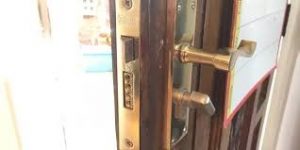
Thumb turn exit – Fire Regulation Locks
Fire Regulation Locks
Last week I quoted a customer for multiple locks within a building of flats in Cromer. I was expecting to wait a while for the confirmation of the job as three of the flats are holiday lets and all four have different owners. In fact, my point of contact phoned to give the job the go ahead very quickly as the neighbouring building had a fire and everyone had to be evacuated for safety. Thankfully, no one was hurt, but guests in the holiday lets did have issues trying to find keys they had placed away from the doors in properties they were not used to.
A thumb turn, keyless escape can be a reduction in security and goes against every bit of best security advice. However, in the event of a fire, your guests are probably going to be sleepy and panicked, the seconds it takes to find the place they have put the keys could be the difference between life and death.
The fire regulations have been in place for a year at time of writing. While a grey area on time was given to get the various jobs done, I doubt any insurance company will pay out after so long should the worst happen. That means those involved in any incidents can chase you, the owner for negligence and your letting agent as well. You could even face criminal charges.
Link to Gov guidance here: https://assets.publishing.service.gov.uk/media/64257cff2fa8480013ec0fec/A_guide_to_making_your_small_paying-guest-accommodation_safe_from_fire.pdf
If you have multiple doors, you might think just the front door and back door are adequate to change, but you must look at every room and think to your self if there were a fire the other side of that room’s inner door, how will someone in a panic get out? If there is a big room with two or more outer doors, will changing one be enough? Is it possible a fire in the middle of that room could cut off access to escape? I know it can be expensive, but nowhere near as expensive as a court battle, even if you win.
If you own a holiday let property or run a property let business, it is now past time for you to have your exit doors converted to fire regulation keyless escape.
Please call me for a no obligation quote.
Price Increases 2022
Here at AC Locksmiths Norfolk, I have always been proud to offer my customers first rate work at competitive prices. Unlike most locksmiths, I display my prices on my website, I do not raise my prices if you call me out at 3am, at the weekend or on a bank holiday. On top of this, I have also kept under the VAT threshold to ensure the price I quote, is the price you get. Despite Brexit and Covid, I have not changed my labour rates in over four years.
Unfortunately, this now must change. I have looked at adjusting the prices of my products. I have looked at smaller changes to products and labour. But in the end, I think it fairer to all my customers to put the change on labour rates only.
If I need to make a second visit though, I will not charge labour when I come back to you. I will still offer free security checks with no obligation quotes, and if I do a door adjustment on UPVC doors, I will still give you a free recall if your door needs it within the next 6 months. No other locksmith I know of will do that for you.
So as of today 07/03/2022, my labour rates will be going up to £75 for all new business.
Please see my prices page for more information
This announcement supersedes all previous blog references to pricing.
Should you have any queries regarding the above, please do not hesitate to get in contact with me.
Alan 07846 643176



